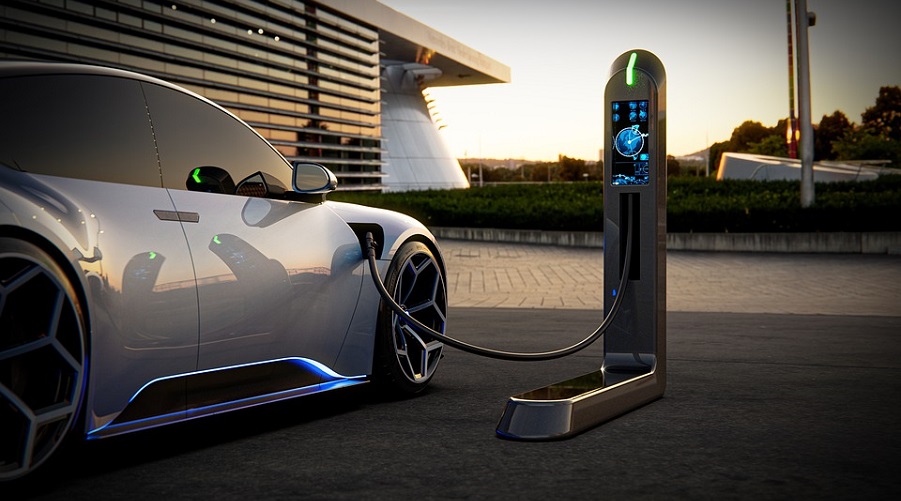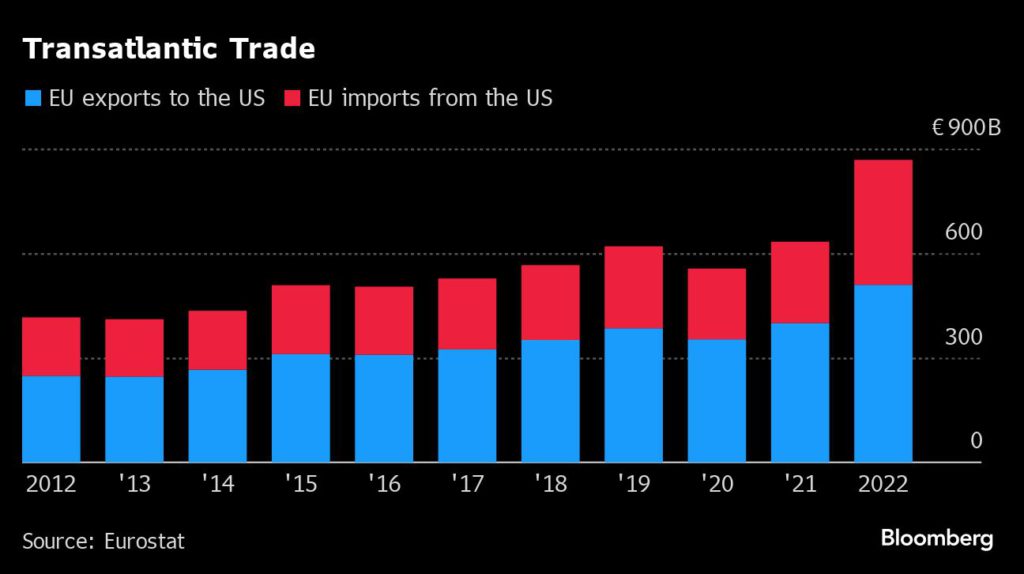US, EU set to miss critical minerals agreement this week

A US and European Union push to reach an accord on fostering critical mineral supply chains is set to miss another target this week, according to people familiar with the discussions.
The final draft statement for a high-level trade and technology meeting in Leuven, Belgium, on Thursday falls short of a deal, instead it says the transatlantic allies “are advancing negotiations toward a critical minerals agreement,” according to a document seen by Bloomberg. An earlier version of the statement left open the door to an “agreement in principle.”
The US and EU are still hoping to reach an agreement later this year before elections on both sides of the Atlantic, said the people, who spoke on the condition of anonymity.
The two allies have been trying to conclude an agreement for many months now but have repeatedly failed to do so. The EU has previously said that’s because the US insists on more onerous terms than those it demanded of Japan for a similar arrangement, including on issues such as reviewing labor rights across supply chains.
The European Commission didn’t reply to a request for comment. An official from the US Trade Representative’s office said that work remains to be done.

“We have been focused on deepening our clean energy partnership with the EU and securing access to sources of critical minerals that are sustainable and trusted, and to build clean energy supply chains free of labor abuses and reflective of high labor standards and environmental protection,” the official said in a statement to Bloomberg News. “We have made progress in the negotiations in all of these areas, but some key differences remain that we will need to work through.”
An agreement is seen as important as it would allow European companies to access some of the benefits of the green subsidies in President Joe Biden’s Inflation Reduction Act, which provides handouts and tax credits over the next decade for clean-energy projects in North America.
A minerals accord would act as the equivalent of a free-trade agreement and that status would in turn enable electric vehicles containing EU-extracted and processed critical minerals to be eligible for IRA subsidies.
However, the benefits of having an FTA-like status through a minerals deal would likely not stretch to recycled critical minerals nor would it blunt final assembly provisions, meaning that many of what the EU sees as unfair irritants in the IRA would remain.
The EU exported €8.6 billion ($9.26 billion) worth of key minerals to the US in 2022, according to the Geneva-based Global Trade Monitor.
This week’s TTC is expected to be slim of tangible deliverables, according to draft documents seen by Bloomberg. Instead, the two allies will mostly take stock on issues ranging from 6G and quantum computing to semiconductors and bio-technologies, seek to cooperate further on preventing gender-based violence online, battling disinformation and principles governing artificial intelligence as well as put in place a basis to continue working together on all these issues and technologies beyond this year’s elections.
(By Alberto Nardelli, Jorge Valero and Eric Martin)
Read More: Lithium trading hits record on CME as funds seize budding market
{{ commodity.name }}
{{ post.title }}
{{ post.date }}




Comments